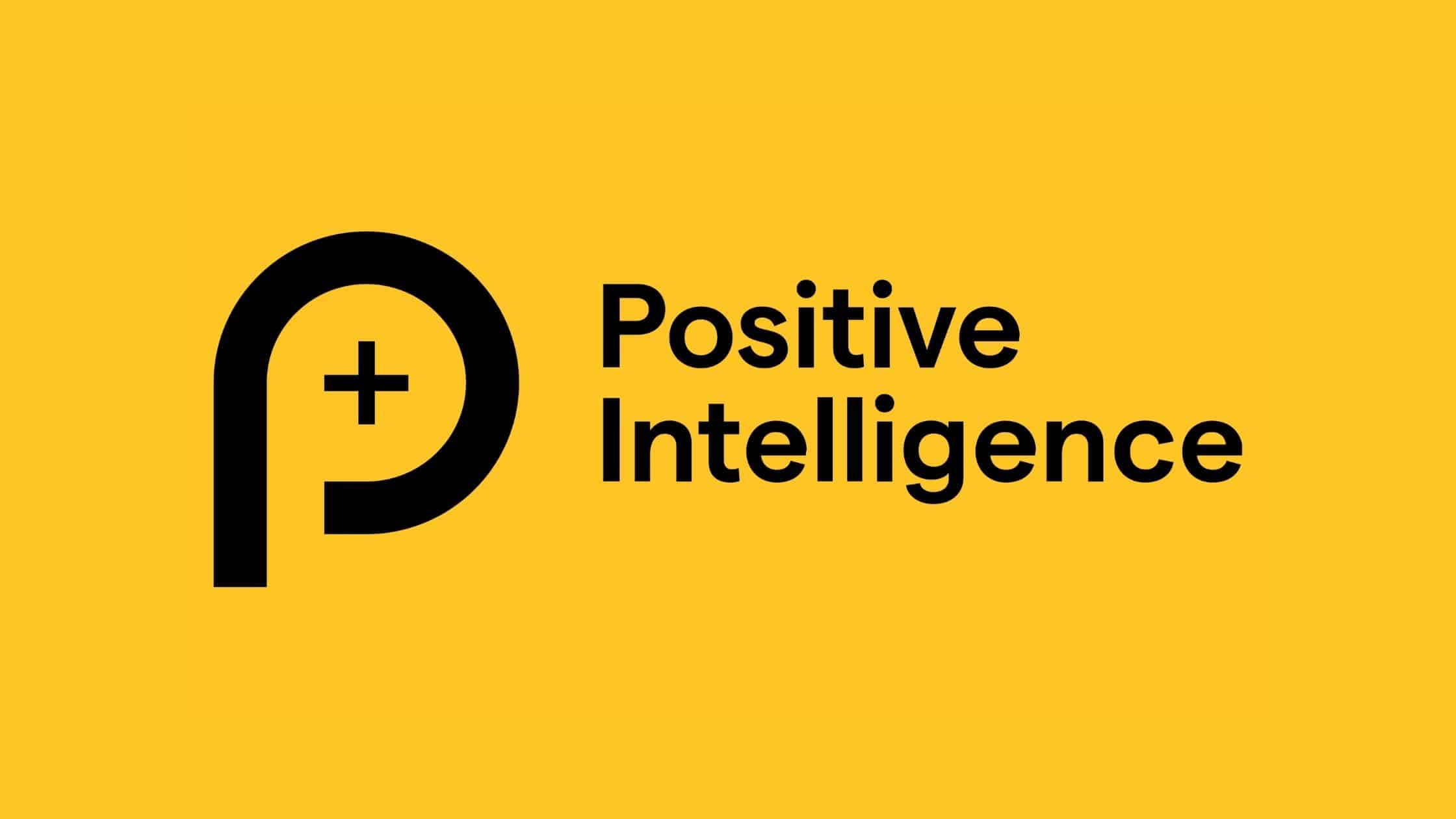When I talk to friends, family, and clients about Positive Intelligence (PQ for the initiated 🙂), I emphasize how it’s been life changing and the missing link to my happiness. I often think of my life kinda like BC and AD – before PQ and after.
Saying it’s changed my life is a pretty huge statement, but even that doesn’t do it justice, considering the impact it has made on my personal and professional life.
In those pre-PQ days, I was unconsciously living in a constant state of anxiety, anger, insecurity, and unhappiness. I masked my insecurities with a rugged exterior. I projected strength to hide weakness. I buried my emotions for fear of being found out and embarrassed. I forced myself to forge ahead.
Overwhelmingly, I felt a deep sense of something missing—that special something that could finally make me happy. It was like standing on the greenest grass but always believing it was greener somewhere else.
That was where I was at. Constantly.
Sounds exhausting, right? I am sure many of you reading this can relate. So in this blog, I want to share my experience using Positive Intelligence, how it helps me manage my day-to-day, how it promotes personal growth, and what it can do for you too.
What Is Positive Intelligence?
Positive Intelligence is a measure of your mental fitness or positive frame of mind that helps people figure out how to productively deal with negative emotions like frustration, anxiety, and negativity.
Championed by Stanford lecturer and New York Times best-selling author Shirzad Chamine, Positive Intelligence lets you see the amount of time your mind is acting positively—allowing it to operate at its full potential without negative influences affecting it.
I discovered PQ when I was invited into Shirzad’s very first cohort of coaches in February 2020. I’m proud to say I am one of the first 100 Coaches to become certified in PQ. I studied every Monday, for 8 weeks, with Shirzad himself as I went through the Core PQ Program.

Why Is Positive Intelligence Vital?
We (humans) are not the best at talking about our emotions and feelings. So many of us push through life with a whip or stick to achieve, succeed, and drive forward with little thought for mental health. We check our emotions at the door. We don’t cry. Or, we cry too much.
Positive Intelligence uses layman’s terms and basic concepts to create a mirror into our minds. In this way, we can recognize the many voices (both positive and negative) that talk to us ALL. DAY. LONG. Positive Intelligence is especially effective in identifying how negative self-talk holds us back, makes us defensive, and stops us from being our best selves – the best self we’ve always known we could be, but is regularly just out of reach.
So often, we convince ourselves that we are not good enough or incapable of success. Of course, these terrible lies keep us from meeting our true potential. Positive Intelligence shows us that our deepest insecurities have no basis nor proof in reality. Yet, we convince ourselves that what our brain makes up is a proven fact. Well, I am living proof that it’s all BS!
What Can Positive Intelligence Teach You?
The most important thing you will learn is that now is the time to live with a narrative that’s encouraging, forgiving, full of positive emotions, respectful and expresses self-love for yourself.
I’ll be willing to bet that when other people in your life, whether they are colleagues, friends, or family, make mistakes, you tell them, “it’s ok,” or “don’t worry about it.”
BUT, if you make the same mistake, your brain rains armageddon down on you! Your internal monologue goes into negativity overdrive, beating the sh*t out of your self-esteem without a hint of humanity.
PQ helps you flip that script. You can be great AND make mistakes—it’s all part of being human!
Unlike anything you’ve learned in any professional development program or self-help book, Positive Intelligence will help you identify negative thought patterns and overcome them with a positive attitude.
Shirzad Chamine defines these negative and positive thought types as muscles in the brain known as ”Judge and Saboteurs” and ”Sage.”
Negative saboteurs tend to elicit crappy emotions, such as stress, shame, guilt, anxiety, self-doubt, delusion, or escape. In contrast, positive sage muscles combat these negative thoughts with clarity, confidence, and assertiveness.
Positive Intelligence will show you how to push back against self-sabotage and go about your life with purpose.
What Is A Saboteur Personality?
Have you ever gone for a promotion but pulled out at the last minute because you deemed yourself unworthy? Have you ever avoided a problematic situation for fear of embarrassment? Do you take feedback poorly?
If you answered yes to any of these, then one (or more) saboteur personality traits have been messing with you. Positive Intelligence saboteurs can affect our social interactions and self-confidence. They profoundly impact our ability to employ positive thinking in many aspects of our daily lives.

There are ten saboteurs in total, and here are some brief descriptions. Do you recognize yourself in any of them?
Introducing The ”Judge”
Like any collective, there is always a ringleader; in this case, it is the Judge. It’s always there telling you you are not good enough, reminding you that you aren’t as good as others or you don’t measure up. The Judge uses comparison as a tool to deter you from competing for that job application, even when you are qualified and capable.
Introducing The ”Victim”
The Victim saboteur is committed to having difficulties. This emotional blackmailer promotes feelings of hopelessness and powerlessness, causing you to recoil and retreat. Being overly emotional and tempermental can be ways to gain attention and affection.
Introducing The ”Hyper-Vigilant”
Danger! Danger everywhere! The fear of taking risks prevents the Hyper-Vigilant from taking leaps into the unknown that may be beneficial in the long run. By choosing safety and consistent performance, people with this streak are often perceived as party poopers and squares.
Introducing The ”Restless”
Defined by the compulsion to excessively shift focus from one task to another, the Restless saboteur often deviates from necessary jobs in favor of what is deemed more exciting. The obvious downside is that many tasks go uncompleted—and an overwhelming feeling of unfulfillment remains.
Introducing The ”Pleaser”
Typified by a need for acceptance and constant adulation by helping, pleasing, and rescuing others, the Pleaser often feels unfulfilled when their efforts go unrequited or acknowledged.
Introducing The ”Hyper-Achiever”
Positive Intelligence characterizes this trait as a misunderstanding that accomplishment is the primary prerequisite for self-love, self-acceptance, and self-identity. The Hyper-Achiever often becomes out of touch with their inner self and loses sight of what makes them unique.
Introducing The ”Hyper-Rational”
Rationality is good, but an overabundance of this personality type often causes individuals to cast aside their emotions and appear cold and distant to co-workers and friends. This intense and exclusive focus on rational thought and decision making makes us impatient with emotions, ours and those of others.
Introducing The ”Avoider”
A common refrain for many of us is to leave things to the last minute, take the easy road, and avoid challenging tasks at all costs. Uncertainty and a fear of failure make avoidance strategies even more common for people with this negative trait.
Introducing The ”Stickler”
Punctual, rule-obeying, and critical of those who don’t adhere to those rules, the Stickler has a need for perfectionism and organization that gets taken too far. The Stickler is highly critical of themselves and others, and tends to see the world in black and white.
Introducing The ”Controller”
Outspoken, forceful, and often dismissive of those perceived as subordinate. People with this personality type can cause unnecessary conflict, creating a workplace environment that is toxic and uncomfortable.
How I Teach Positive Intelligence

There is no use in coaching positive intelligence in a one-size-fits-all way. No two people are the same and we all have different stresses and unique experiences that make us who we are. Therefore, like all my coaching, taking a real-world, flexible approach to positive intelligence is essential. Rigidity doesn’t suit me, and I don’t think it helps people who want to lead fruitful and successful lives.
Here is a snapshot of the types of people I have coached and the issues they have overcome:
-
- People who struggle to speak up and feel heard.
- Executives who feel they aren’t productive communicators.
- Middle-management individuals who avoid confrontation.
- Individuals who struggle to keep their cool in stressful situations.
- People who fear confrontation (one of my favorite problems to tackle!).
Positive Intelligence is becoming very popular with leaders all over the world as they realize the potential for professional and personal growth. Because of this, many coaches are popping up all over the internet—for the record, I think this is great!
With that said, I have a unique way of coaching positive intelligence to boost clients’ confidence. I curse. I laugh. I create a safe place for you to feel comfortable enough to stretch your vulnerability.
As a card-carrying positive intelligence convert, I practice what I preach. I use my PQ skills everyday and am a life-long learner. Even though I lead people through the program and am the ‘expert’, I still battle my Judge and Saboteurs daily (just like Shirzad who shared with me during my training that he also battles his every day).
How Does Positive Intelligence Help?
Positive Intelligence will uncover the saboteurs that are specific to you. You can learn how they affect you, and where, why, and how they show up. You can use Positive Intelligence techniques to minimize their negative impact on you.
Positive Intelligence shows you how to flip the script by learning how to overcome the patterns of negativity and insert new patterns of empathy, creativity, exploration, and action – the type of action in which we don’t quadruple-check and doubt ourselves.
If you’re ready to stop self-sabotage, increase well-being, improve your personal and professional relationships, replace self-judgment with self-acceptance, and elevate your PQ score, consider enrolling in a PQ focused coaching program.
There’s a great quote that states “It takes courage to be the person you always knew you could be.” Positive Intelligence can help you achieve that courage. It’s time to live with a narrative that’s encouraging, forgiving, and applies the same amount of grace to ourselves that we apply to everyone else.
Learn more about The Positive Intelligence Workshop right here.
Did you like this article? You might also like:
Saboteurs: Overcoming The Controller Saboteur


